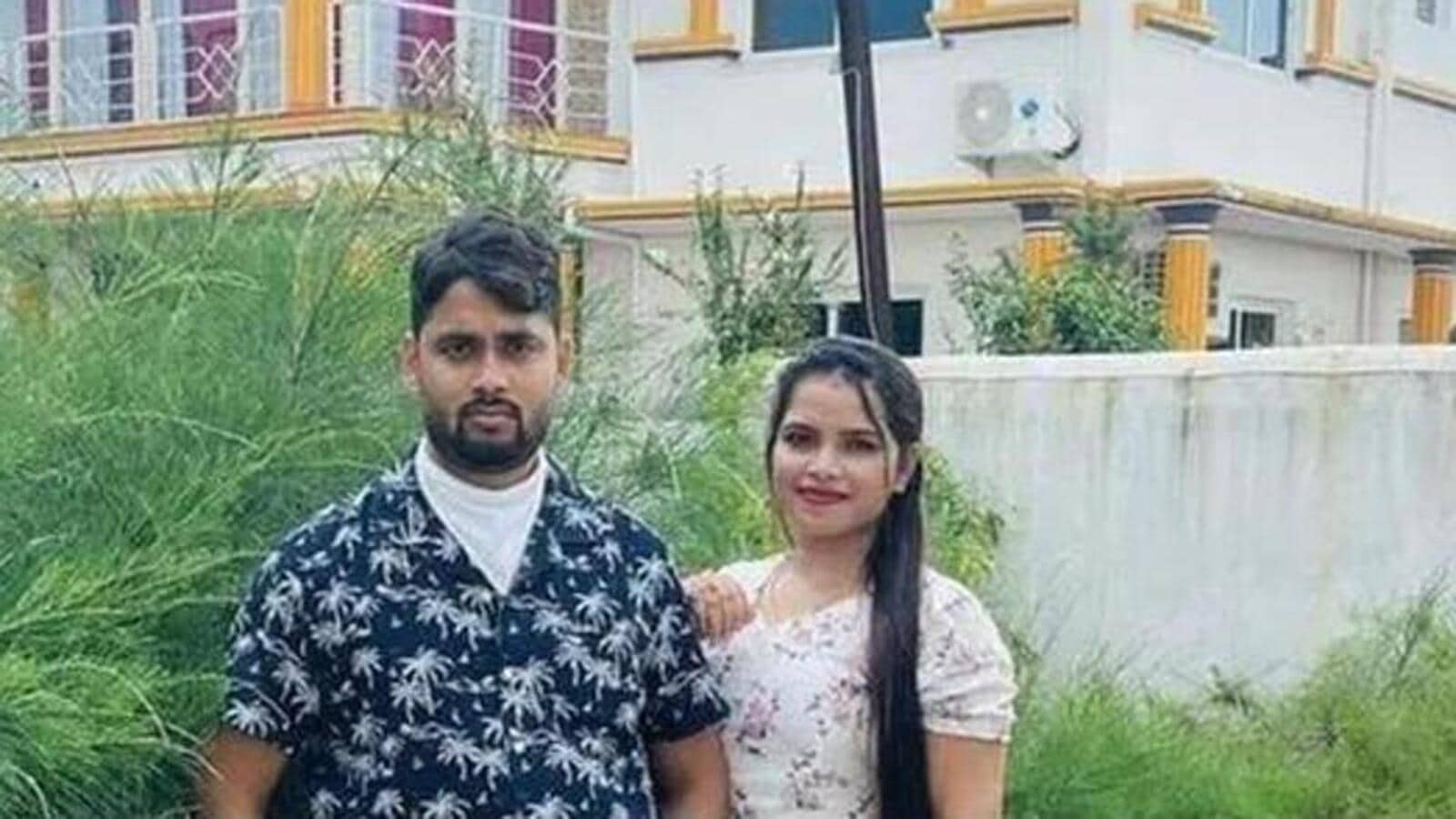It's a really sensitive topic, this whole idea of an "Odisha viral MMS video," and it's something that, frankly, brings up a lot of worries for people. When private moments get shared without permission, it's not just a small problem; it's a huge violation of someone's personal space and trust. You see, these situations can cause a lot of pain and distress, and it's a conversation we really need to have about digital safety and respect.
Odisha, a place often called "the soul of India," is a state in the eastern part of the country, known for its rich history and beautiful cultural heritage. It's bounded by states like Jharkhand and West Bengal to the north, and the vast Bay of Bengal stretches along its eastern side. Bhubaneswar, a city long known as Ekamra Kshetra or the temple city, serves as the capital of this vibrant state, which is, you know, quite renowned for its spiritual sites and natural beauty. This state, with its almost 42 million people, has a unique charm, and its people, speaking Odia, are, in a way, very much connected to their roots.
However, just like any place in our increasingly connected world, Odisha faces some modern challenges. The issue of private videos, sometimes called "MMS videos," becoming widely shared without consent is a serious concern that affects individuals deeply. This article will look at what these incidents mean, what the law says about them, and how people can find help and support. It's about, you know, making sure everyone understands the gravity of these acts and how we can work towards a safer digital environment, especially as of late 2023.
Table of Contents
- What is "Viral MMS Video" and Why is it a Concern?
- Legal Protections Against Non-Consensual Content Sharing in India
- The Human Cost: Impact on Individuals and Society
- Steps to Take if You Are Affected or Witness Such an Incident
- Odisha: A State Facing Digital Challenges Amidst Rich Heritage
- Frequently Asked Questions
What is "Viral MMS Video" and Why is it a Concern?
When people talk about an "Odisha viral MMS video," they are, in a way, referring to private visual content, often intimate in nature, that gets shared widely on the internet or through messaging apps without the permission of the people shown in it. This kind of sharing is a deeply troubling act, and it can, quite honestly, shatter lives. The "MMS" part of the phrase comes from the Multimedia Messaging Service, an older technology, but today, these videos spread across platforms like WhatsApp, Telegram, and various social media sites. So, it's really about any private video that gets out there against someone's will.
The Digital Landscape and Privacy Risks
Our lives are, in some respects, more connected than ever before. We share so much online, from photos of our lunch to deeply personal thoughts, and this digital landscape, while offering many good things, also brings with it significant privacy risks. Data breaches, hacking, and even just simple mistakes can lead to private information, including videos, falling into the wrong hands. It's a bit like living in a glass house, where, you know, what you think is private might not stay that way for long. The ease with which content can be copied and spread makes it almost impossible to stop once it's out there.
Understanding Consent in the Digital Age
Consent is, quite simply, the cornerstone of respect, especially when it comes to sharing anything personal. In the digital age, this means getting clear, ongoing permission from everyone involved before sharing their images or videos, particularly if they are private. Just because someone shared something with you once, or even if they filmed it themselves, that doesn't, you know, give anyone else the right to share it further. Consent can also be taken back at any time. A lack of consent turns sharing into a violation, a really serious breach of trust and privacy, and that's something we should all be very clear about.
Legal Protections Against Non-Consensual Content Sharing in India
India has, actually, put in place several laws to try and protect individuals from the harm caused by non-consensual sharing of private content. These legal frameworks are meant to provide a path for victims to seek justice and to punish those who commit such acts. It's a way to, you know, say that this behavior is not acceptable and will have consequences. Understanding these laws is a crucial step for anyone affected or concerned about digital safety.
Relevant Laws and Penalties
The primary law dealing with cybercrimes in India is the Information Technology Act, 2000 (IT Act), along with sections of the Indian Penal Code (IPC). For instance, Section 66E of the IT Act addresses the violation of privacy, specifically for publishing or transmitting images of a person's private area without their consent, and it carries penalties like imprisonment or fines. Then there's Section 67 of the IT Act, which deals with publishing or transmitting obscene material in electronic form, and it, too, has serious punishments. Sections of the IPC, like 354C (Voyeurism) and 509 (Word, gesture or act intended to insult the modesty of a woman), also apply, making it clear that such acts are, you know, criminal offenses. These laws aim to deter people from engaging in such harmful activities and provide a basis for legal action.
Reporting Cybercrime in Odisha
If you or someone you know in Odisha becomes a victim of such a crime, knowing how to report it is, honestly, very important. The first step is often to approach the local police station or the Cyber Crime Cell in Odisha. You can also, you know, file a complaint online through the National Cybercrime Reporting Portal. This portal is a central platform for reporting all types of cybercrimes, and it's quite accessible for anyone across the country. It's essential to act quickly, gather any evidence you can, like screenshots or links, and provide as much detail as possible to the authorities. Remember, seeking help is a sign of strength, and there are mechanisms in place to support you.
The Human Cost: Impact on Individuals and Society
The sharing of private "Odisha viral MMS video" content isn't just a legal issue; it has, arguably, a devastating human cost. The people whose privacy is violated often experience profound emotional and psychological distress, and the ripple effects can be felt throughout society. It's a deeply personal attack that leaves lasting scars, and that's something we need to acknowledge fully.
Emotional and Psychological Effects
Imagine having your most private moments exposed to the world without your consent. The emotional fallout can be, you know, immense. Victims often report feelings of shame, humiliation, anger, and betrayal. They might experience anxiety, depression, and even post-traumatic stress. Their sense of safety and trust can be shattered, making it hard to form relationships or even, you know, go about daily life. The constant fear that the content might resurface, or that people they know have seen it, can be a heavy burden. It's a form of digital violence that truly impacts a person's well-being.
Societal Implications and Stigma
Beyond the individual, these incidents have broader societal implications. There's often a tendency to blame the victim, which adds to their suffering and discourages others from coming forward. This stigma can lead to social isolation, damage to reputation, and even, sadly, job loss. It also creates a culture of fear, where people are hesitant to share anything personal online, even with trusted individuals. We need to challenge this victim-blaming culture and instead, you know, focus on holding perpetrators accountable and creating a supportive environment for those affected. It's about building a more empathetic and responsible digital community.
Steps to Take if You Are Affected or Witness Such an Incident
Knowing what to do if you or someone you know is affected by the non-consensual sharing of private "Odisha viral MMS video" content is, quite frankly, very important. Taking immediate and thoughtful steps can help to mitigate the harm and begin the process of seeking justice. It's about empowering yourself or others to act, and that, you know, makes a real difference.
Immediate Actions for Victims
If you discover that your private content has been shared without your consent, the first thing to do is, basically, to try and stay calm. It's a very upsetting situation, but clear thinking helps. Document everything: take screenshots of the content, the platforms where it's shared, and any user profiles involved. Do not try to communicate with the person who shared it, as this can sometimes make things worse. Report the content to the platform immediately; most social media and messaging apps have mechanisms for reporting non-consensual intimate imagery. Then, reach out to someone you trust, like a family member or a friend, for emotional support. This initial response is, you know, really crucial for your well-being and for building a case.
Seeking Legal Help and Support
After taking immediate steps, it's, honestly, time to consider legal action. Contacting a lawyer who specializes in cybercrime or privacy law can provide you with guidance on your rights and the legal avenues available. They can help you file a formal police complaint and navigate the legal process. In addition to legal help, seeking support from mental health professionals or support groups can be incredibly beneficial. Organizations that help victims of cyberstalking or online harassment can offer resources and a safe space to process what has happened. Remember, you don't have to go through this alone; there are people and services designed to help you, and that's something to hold onto.
Promoting Digital Citizenship and Awareness
Beyond individual actions, there's a broader need to promote better digital citizenship and awareness. This means educating ourselves and others about online safety, privacy settings, and the importance of consent in all digital interactions. Schools, families, and communities all have a role to play in teaching responsible online behavior. It's about creating a culture where privacy is respected, and where people understand the serious consequences of sharing private content without permission. By raising awareness, we can, you know, work towards preventing such incidents from happening in the first place, fostering a safer online environment for everyone. Learn more about digital rights on our site, and you can also find resources on online safety tips.
Odisha: A State Facing Digital Challenges Amidst Rich Heritage
Odisha, as we know, is a state in eastern India, renowned for its really rich history, its cultural heritage, and, you know, its economic potential. It's a place that has been, for a long time, celebrated for its ancient temples, its vibrant traditions, and its natural beauty, with the Bay of Bengal stretching along its eastern coast. This state, formerly known as Orissa, has an area of 155,820 km² and is endowed with vast resources of a variety of minerals, occupying a prominent place in the country as a mineral-rich state. Bhubaneswar, its capital, is a major hub, offering lodging, entertainment, food/drink, sports, and attractions, making it a popular place for visitors.
Odisha's Unique Identity and Digital Growth
The state's unique identity is deeply rooted in its history as the ancient nation of Kalinga, which, you know, has shaped its culture and traditions. Today, Odisha is also experiencing significant digital growth, with more and more people gaining access to the internet and mobile technologies. This expansion brings many opportunities for education, business, and communication. However, this rapid digital adoption also means that the challenges of the online world, including cybercrimes like the non-consensual sharing of private content, are, unfortunately, becoming more prevalent. It's a dual-edged sword, really, offering both progress and new kinds of problems.
Balancing Progress with Digital Safety
For a state like Odisha, balancing the benefits of digital progress with the need for digital safety is, arguably, a really important task. It involves educating its citizens about online risks, strengthening cybercrime enforcement, and providing support systems for victims. The eastern part of the state, close to the sea, is more prosperous, with a lot of tourist locations and religious places, which means a higher influx of people and, perhaps, more digital interactions. As Odisha continues its journey of development and connectivity, fostering a strong culture of digital responsibility and privacy protection will be, you know, absolutely vital to ensure that its people can enjoy the advantages of the digital age without falling victim to its dangers. It's a continuous effort to make sure technology serves the people safely.
Frequently Asked Questions
What are the laws against sharing private videos in India?
In India, sharing private videos without consent is covered under several laws, primarily the Information Technology Act, 2000, especially Section 66E, which deals with privacy violations, and Section 67, concerning obscene material. Additionally, sections of the Indian Penal Code, such as 354C (Voyeurism) and 509 (Insulting the modesty of a woman), can also apply. These laws carry penalties including imprisonment and fines, making such acts, you know, serious criminal offenses.
How can I report a cybercrime in Odisha?
To report a cybercrime in Odisha, you can approach your local police station or the dedicated Cyber Crime Cell within the state. You also have the option to file a complaint online through the National Cybercrime Reporting Portal, which is accessible across India. It's important to gather all available evidence, like screenshots or links, and provide as much detail as you can when reporting, as a matter of fact, to help the authorities.
What are the consequences of sharing someone's private video without consent?
Sharing someone's private video without their consent can lead to severe legal consequences for the perpetrator. Under Indian law, this can result in imprisonment, significant fines, or both, depending on the specific sections of the IT Act and IPC that are applied. Beyond legal penalties, there's also the social stigma and reputational damage for the person who shares the content, and it, you know, really impacts their own standing, too.
For further information on cybercrime reporting, you can visit the official National Cybercrime Reporting Portal: https://cybercrime.gov.in/



Detail Author:
- Name : Berniece Hayes
- Username : barrows.rollin
- Email : abshire.tierra@yahoo.com
- Birthdate : 1986-01-17
- Address : 7584 Treutel Spur North Alysha, NV 45696
- Phone : (847) 366-2739
- Company : Cole, Quitzon and Streich
- Job : Career Counselor
- Bio : Et qui vel sed dolores inventore. Ratione nihil sit nisi maxime tempore. Et omnis magni sint iure ad explicabo. Itaque sint doloremque animi corrupti officia aperiam.
Socials
tiktok:
- url : https://tiktok.com/@kilbacke
- username : kilbacke
- bio : Numquam molestiae asperiores molestiae dolore architecto rem id earum.
- followers : 6122
- following : 1775
twitter:
- url : https://twitter.com/ekilback
- username : ekilback
- bio : Et itaque ipsa commodi quae id. Sapiente omnis minima ullam qui quidem rerum placeat. Ipsa necessitatibus consequatur dolor ratione.
- followers : 3371
- following : 1550